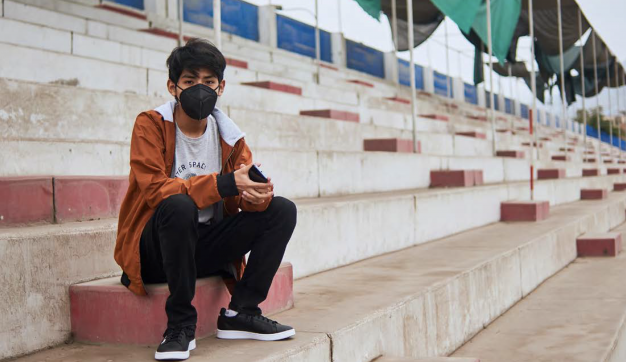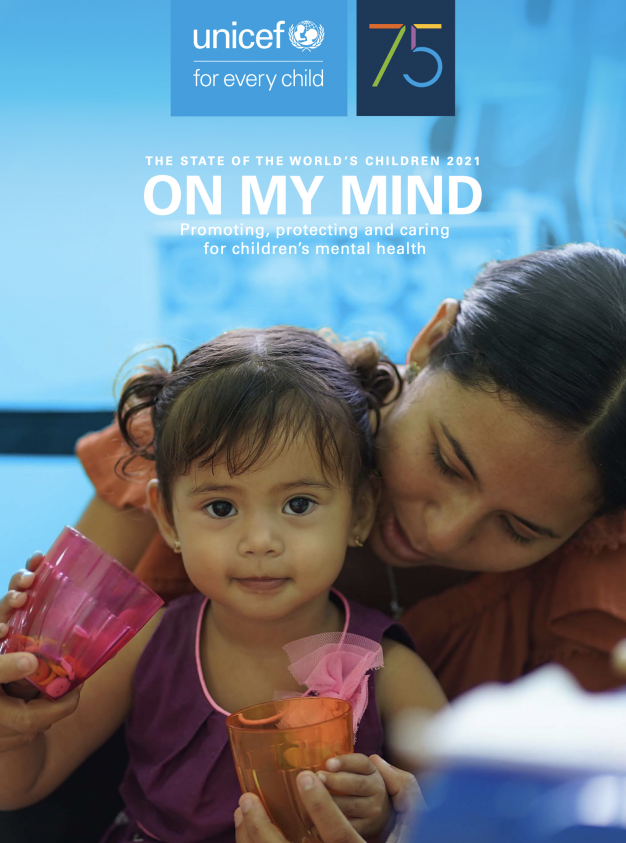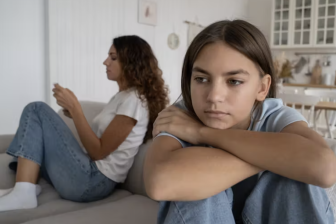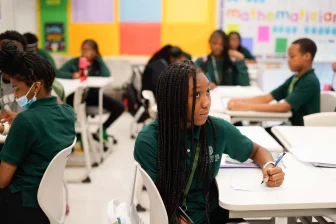
UNICEF: The State of the World’s Children 2021 Report
The effects of the global pandemic on the mental health and well-being of children and adolescents may take years to be fully appreciated, says children’s charity UNICEF in a major new report.
It has urged governments to invest much more money and resources into preserving young people’s mental health, particularly those from poorer communities and who come from vulnerable family backgrounds.
On My Mind: The State of the World’s Children 2021 is one of the most comprehensive studies in years which focuses solely on mental health globally, which has been inextricably affected by the lockdowns imposed in virtually every country, including of course the closure of schools.
The report highlights how psychiatrists saw signs of distress with young children and teenagers alike experiencing bereavement, suicidal thoughts, anxiety, eating disorders, closed playgrounds and numerous other issues, as the lockdowns and being forced to study from home cut them off from their extended families, friends and every-day routines.
UNICEF said that commitment, communication and action were the three key things that could, and should, underpin a comprehensive approach to promoting good mental health for all children, protecting the most vulnerable and caring for those facing the greatest challenges.
Henrietta Fore, UNICEF’s executive director, said: “The impact is significant, and it is just the tip of the iceberg. With nationwide lockdowns and pandemic-related movement restrictions, children have spent indelible years of their lives away from family, friends, classrooms, play – key elements of childhood itself.”
Even before the pandemic, far too many children were burdened under the weight of unaddressed mental health issues. Too little investment is being made by governments to address these critical needs.
Key findings include:
- It is estimated more than 13 per cent of adolescents aged 10-19 live with a diagnosed mental disorder
- This represents 86 million 15-19 year-olds, and 80 million 10-14 year-olds
- Rates are highest in the Middle East, North Africa, North America and Western Europe
- Anxiety and depression account for around 40 per cent of disorders.

In the report, child psychiatrists say were already short of resources before the pandemic brought a surge in caseloads. UNICEF said spending on promoting and protecting mental health ‘is extremely low’ yet the needs are pressing.
But a lack of investment, it adds, means that staffing levels, including those working in urban communities, are not equipped or trained to address the issues facing them.
A girl in a discussion group for 15-19 year-olds in Jamaica said she believed that everyone goes through periods of low-level depression that stem from the challenge of finding out ‘who you are as a person’. The problem, she said, is that those feelings ‘can be boosted or fuelled’ by experiences in the world. “I think that it starts here – when I think that it becomes serious is when those sorts of feelings or emotions are neglected.”
Meanwhile a boy in the discussion group for 10-14 year-olds in the Democratic Republic of the Congo sums up how for millions, COVID-19 has presented scenarios few could ever dream of: “When I think about everyone that has died because of the disease, it makes me sad and when I learn about the number of cases is increasing, it makes me stressed.”




